Raising a Parakeet isn’t easy; one day, they jump around and go utterly silent on the other. Hence, it’s not easy to detect whether a specific behavior of this bird is natural or a sign of illness.
If you notice your parakeet lying on the bottom of the cage, it can cause concern. Parakeets lay on the bottom of their cages to sleep, rest, or out of boredom. It can also be a nesting behavior or a sign of illness. Injury, disease, and respiratory sickness can also be the cause.
Read on to explore the potential causes and treatments for a parakeet lying on the bottom of the cage.
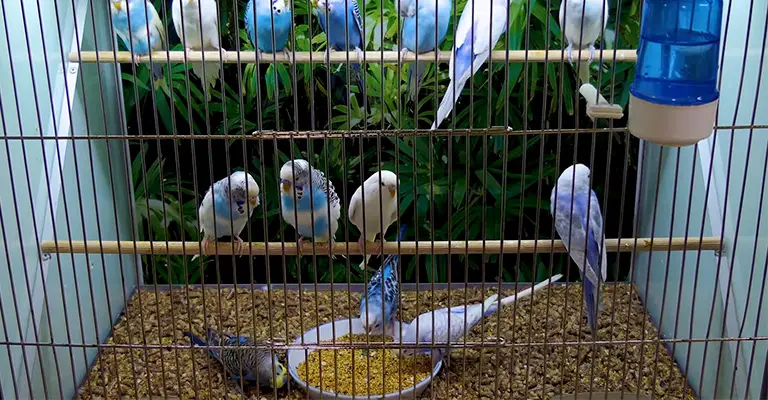
Cause of the Parakeet Laying on Bottom of Cage
In case you have ruled out natural behavior and suspect sickness, there are some other factors that you need to consider. Below are some potential causes for a parakeet laying on the bottom of the cage:
Illness or Injury
A parakeet may be experiencing an illness or injury that is causing weakness and preventing it from perching or moving around normally. Infections, organ disorders, respiratory issues, and injuries can all contribute to a bird’s lethargy.
Nutritional Deficiencies
Improper diet or a lack of essential nutrients can lead to weakness and lethargy in birds. Malnutrition can affect their overall health and energy levels, causing them to become inactive and spend more time on the cage floor.
Environmental Factors
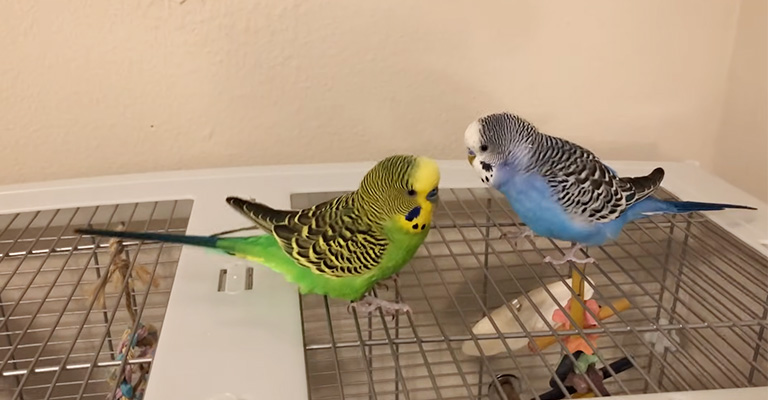
Poor environmental conditions, such as an overly hot or cold cage, inadequate lighting, or exposure to toxins, can affect a parakeet’s well-being. Uncomfortable temperatures or toxic substances may lead to weakness and a lack of energy.
Stress or Emotional Distress
Birds, including parakeets, are sensitive creatures and can experience stress or emotional distress. Changes in their environment, such as a new pet, relocation, or the loss of a companion, can cause them to become depressed or lethargic.
Reproductive Issues
Female parakeets may lay eggs and experience complications during the process, such as egg-binding. This condition occurs when an egg becomes stuck inside the bird’s reproductive tract, causing discomfort and lethargy.
Treatments of Parakeet Laying on the Bottom of Cage
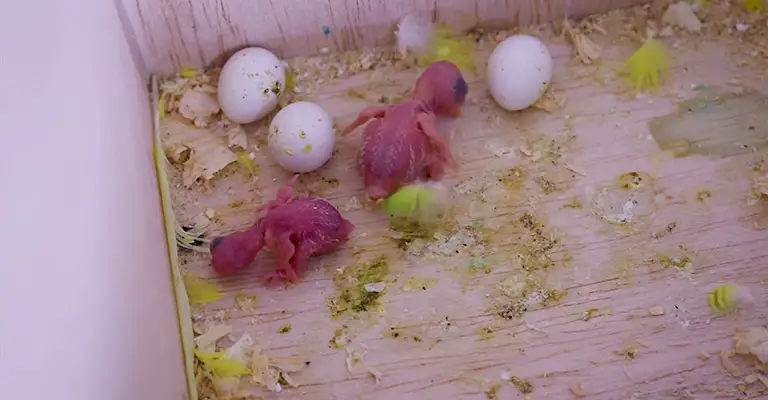
The treatment for a parakeet or any bird lying on the bottom of the cage will depend on the underlying cause. It is important to consult a veterinarian experienced in avian care for a proper diagnosis and treatment plan.
However, here are some general measures that may be taken:
Veterinary Examination
Schedule a visit to an avian veterinarian as soon as possible. They will perform a thorough examination to determine the underlying cause of the bird’s condition.
Diagnostic Tests
The veterinarian may recommend diagnostic tests, such as blood work, X-rays, or fecal analysis, to further evaluate the bird’s health and identify any specific issues.
Medications
If the veterinarian identifies an illness or infection, they may prescribe appropriate medications, such as antibiotics, antifungals, or antiparasitic drugs, to address the underlying problem.
Supportive Care
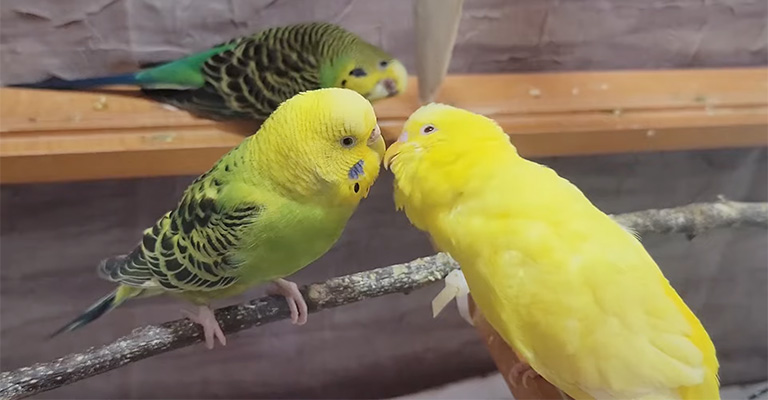
Depending on the bird’s condition, the veterinarian may provide supportive care, including fluids, heat support, and supplemental nutrition, to stabilize the bird and aid in its recovery.
Nutritional Adjustment
Ensure the bird is receiving a balanced and appropriate diet. The veterinarian may recommend changes in the bird’s diet to address any nutritional deficiencies or imbalances.
Environmental Modifications
Evaluate the bird’s environment for potential stressors or hazards. Make any necessary adjustments, such as providing appropriate perches, temperature control, and removing any potential toxins from the bird’s surroundings.
Emotional Support
If the bird is experiencing emotional distress, provide a calm and comforting environment. Spend time near the bird’s cage, talk to it gently, and offer companionship to help alleviate any stress or loneliness.
Factors Contributing To A General Lack Of Energy Or Stamina In A Parakeet
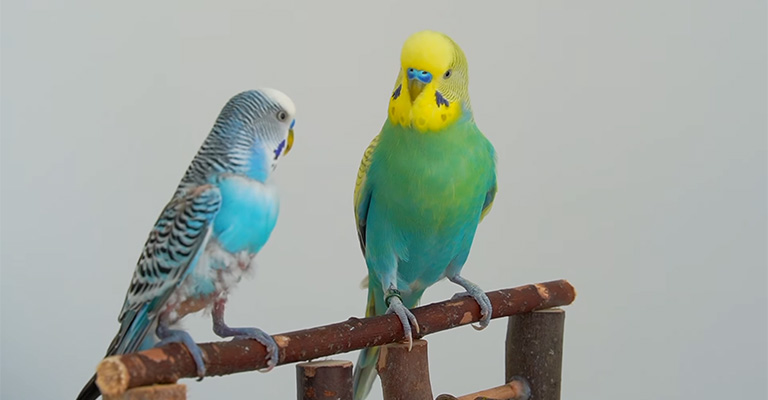
Factors contributing to a general lack of energy or stamina in a parakeet can include:
Malnutrition:
An inadequate or imbalanced diet lacking essential nutrients can lead to a lack of energy and stamina. A varied and nutritionally complete diet is crucial for the bird’s overall health and vitality.
Dehydration
Insufficient water intake can result in dehydration, which can cause lethargy and decreased activity levels. It’s essential to ensure that fresh water is always available to the parakeet.
Illness or Infection
Underlying health issues such as respiratory infections, digestive problems, or parasitic infestations can drain the parakeet’s energy, leading to a lack of stamina. These conditions may require veterinary attention and appropriate treatment.
Stress or Anxiety
Parakeets are sensitive creatures, and stressful or anxiety-inducing situations can affect their energy levels. Environmental changes, lack of mental stimulation, or social isolation can decrease energy and stamina.
Lack of Exercise
Insufficient physical activity and exercise can result in a sedentary lifestyle for parakeets. Regular exercise is essential for maintaining muscle tone, cardiovascular health, and overall energy levels. Providing opportunities for flight, play, and exploration can help improve stamina.
Environmental Factors
Unfavorable cage conditions, such as extreme temperatures, inadequate lighting, or exposure to drafts, can affect a parakeet’s energy levels. Creating a comfortable and suitable environment with appropriate lighting and temperature control is essential.
Age and Underlying Health Conditions
As parakeets age, they may naturally experience decreased energy and stamina. Additionally, underlying health conditions such as organ dysfunction or metabolic disorders can contribute to a general lack of energy.
FAQs
A parakeet can die from lying on the bottom of the cage, but it is not a common cause. Parakeets are active birds, and spending extended periods on the cage floor can indicate illness, injury, or distress. Suppose a parakeet is consistently found on the bottom of the cage and appears lethargic, fluffed up, or exhibits other abnormal behavior. In that case, it may indicate a severe health issue.
It is advisable to consult a veterinarian before changing the bird’s environment. Remember to introduce the new cage gradually to allow your parakeet to adjust. Place everyday items, such as their existing toys or perches, in the new cage to create a sense of familiarity.
Provide a balanced diet, clean water, regular veterinary check-ups, and maintain a clean and suitable environment. Also, regularly clean the cage and accessories to maintain hygiene. Remove droppings, uneaten food, and soiled bedding promptly.
Parakeets may spend more time on the cage floor during molting as they shed feathers. They can also stay at the cage bottom for other natural causes such as curiosity, playing, temperature changes, and stress.
Yes, male parakeets may display territorial behavior during mating season, such as staying on the bottom of the cage. Ensure your parakeet has a balanced photoperiod and limit the availability of nesting materials to discourage excessive breeding behavior.
Final Words
So, that was all about the parakeet lying on the bottom of the cage. While it is essential to understand the natural behaviors of parakeets, spending excessive time on the bottom of the cage can indicate underlying health issues.
By identifying potential causes and seeking appropriate treatments, you can help ensure the well-being and longevity of your parakeet. Consulting a veterinarian is crucial for accurate diagnosis and tailored treatment options to address your parakeet’s needs.